Pharmacies handle more than just pills and prescriptions-they manage sensitive patient data every time someone calls in for a refill, asks about side effects, or confirms a pickup time. If you’re using a regular business VoIP system to handle these calls, you’re risking a HIPAA violation. And with the Office for Civil Rights ending its enforcement discretion in August 2023, that risk is no longer theoretical. Fines can hit up to $1.9 million per violation. Criminal charges are possible. Patient trust is on the line.
Why Standard VoIP Won’t Cut It for Pharmacies
Most VoIP systems-like Zoom, Microsoft Teams, or basic business phone services-are built for sales calls, team chats, or customer service. They’re not designed to handle protected health information (PHI). A patient leaving a voicemail saying, “I need my blood pressure med refilled, but I’m worried about the dizziness”-that’s PHI. If that voicemail isn’t encrypted, stored securely, or logged properly, you’ve broken HIPAA rules. Even something as simple as SMS text alerts can be a violation. If a patient hasn’t explicitly asked for SMS updates and you’ve sent a refill reminder via text, that’s a breach. The same goes for unsecured email confirmations or unencrypted call recordings. Standard VoIP platforms don’t automatically lock down these channels. You have to configure them right-and most don’t even give you the tools to do it.What Makes a VoIP System HIPAA Compliant for Pharmacies
A true pharmacy-grade VoIP system isn’t just about encryption. It’s about control, auditability, and integration. Here’s what you need:- End-to-end encryption for all calls, voicemails, and messages-using TLS or SRTP protocols, not just basic SSL.
- Unique user authentication so every tech, pharmacist, or front desk worker has their own login. No shared passwords. No guest access.
- Comprehensive call logging that records who called, when, how long, and what actions were taken. This isn’t optional-it’s required for audits.
- Business Associate Agreements (BAAs) signed with your VoIP provider. Without this legal contract, you’re still liable-even if the vendor claims they’re “HIPAA compliant.”
- Voicemail-to-text with secure handling so voice messages don’t sit unencrypted in a cloud inbox.
- Integration with pharmacy systems like PioneerRx, Pharmaserv, or Epic. The system should pull up a patient’s medication history when they call, so staff don’t have to ask for details they shouldn’t.
Here’s the catch: no VoIP service is HIPAA compliant out of the box. Compliance comes from how you use it. A vendor might say, “We’re HIPAA compliant,” but if they don’t offer a BAA or don’t let you disable unsecured SMS, they’re not helping you stay compliant. You’re still on the hook.
Key Features Pharmacies Actually Need
Generic VoIP tools might handle incoming calls. Pharmacy-specific systems handle workflows. Here’s what separates the good from the dangerous:- Automated refill routing-Calls from patients requesting refills go straight to the right queue, bypassing front desk staff who aren’t trained to verify prescriptions.
- IVR menus built for pharmacy needs-“Press 1 for refill status,” “Press 2 for medication questions,” “Press 3 to speak to a pharmacist.” No generic “sales or support” options.
- Refill reminder automation-Automated calls or secure portal alerts to patients whose meds are due, with opt-in tracking to prove consent.
- Mobile access for remote verification-Techs working from home can log in securely to verify prescriptions without using personal phones or unsecured apps.
- PHI redaction in recordings-Newer systems like Emitrr’s 3.2 update automatically blur out names, dosages, or conditions from call recordings after they’re processed.
One Ohio pharmacy chain saw a 32% drop in abandoned prescriptions after switching to a VoIP system with automated reminders. Why? Patients weren’t forgetting to call back. They were getting timely, secure nudges.
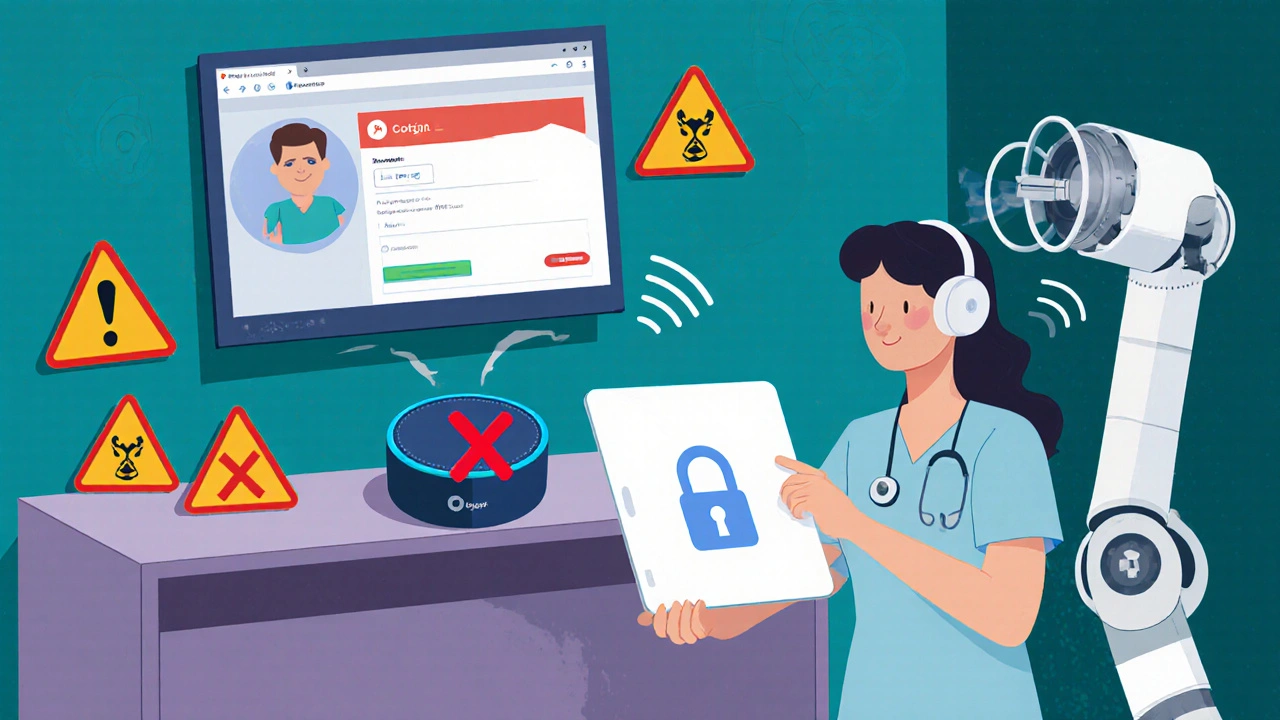
The BAA Is Non-Negotiable
You can have the fanciest encryption, the most advanced IVR, and the best integration-but if you don’t have a signed Business Associate Agreement with your VoIP provider, you’re not compliant. The OCR doesn’t care how good your tech is. They care about contracts.A valid BAA must include:
- Exactly how PHI can be used and disclosed
- Security measures to prevent breaches
- How breaches will be reported (within 60 days, minimum)
- What happens to PHI when the contract ends-must be returned or destroyed
- Requirements for subcontractors (if your vendor uses a third-party server)
- Your right to terminate the contract if they violate HIPAA
- Cooperation with HHS audits
David Harlow, a healthcare attorney, says it plainly: “Buying a ‘HIPAA-compliant VoIP’ doesn’t make you compliant. Using it correctly does.”
Implementation: What to Expect
Switching to a pharmacy-specific VoIP system isn’t plug-and-play. Most pharmacies report 4 to 12 weeks of setup time. Here’s what you’ll need to do:- Do a risk assessment-Identify where PHI is transmitted, stored, or accessed in your current system. Use NIST SP 800-66 as your guide.
- Sign BAAs-Don’t skip this. Get it in writing, reviewed by legal counsel.
- Train staff-Pharmacy techs need to know: no texting PHI, no using personal phones for work calls, no leaving voicemails with full details.
- Integrate with your pharmacy software-This is where most delays happen. 58% of pharmacies need custom API work, costing an average of $4,200.
- Set up audit trails-Every login, every call, every file access must be logged. No exceptions.
- Test your backup plan-What happens if the internet goes down? You need a fallback, like a landline or cellular-based system that’s also HIPAA-ready.
A CVS location in Texas saved 22% on call handling time after switching-but spent $8,500 on training. That’s the hidden cost. Budget for it.
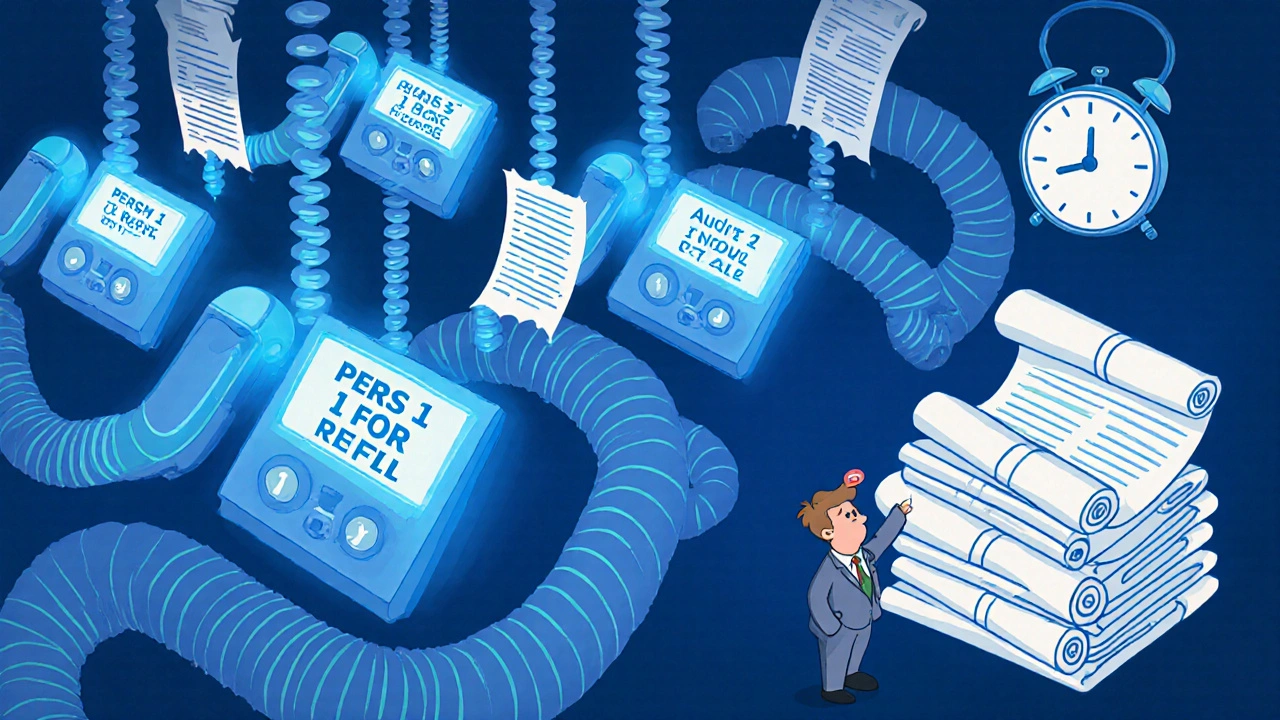
What’s Happening in the Market (2025)
The pharmacy VoIP market is exploding. In 2022, it was worth $2.8 billion globally. By 2028, it’s projected to hit $7.1 billion. And 78% of pharmacies will be using specialized systems by 2025, up from just 42% in 2022.Top vendors like Nextiva, 360Connect, and Emitrr are adding AI tools that understand medical terms. One Nextiva pilot cut call times by 37% by auto-filling patient data from EHRs during calls. That’s not just convenience-it’s risk reduction. Less back-and-forth means fewer chances for miscommunication or accidental PHI exposure.
But beware of consumer tech creeping into pharmacies. Amazon Alexa and Google Home devices are being used for scheduling or reminders in some locations. That’s a problem. These devices record and send voice data to the cloud without encryption or BAAs. The American Health Information Management Association warned in September 2023 that this violates HIPAA’s Security Rule §164.312(b).
Costs and ROI
Entry-level HIPAA-compliant VoIP starts at $20 per user per month. Enterprise systems with full EHR integration can hit $50+ per user. That’s more than a basic Zoom plan-but you’re not just paying for calls. You’re paying for compliance, audit logs, secure messaging, and integration.ROI isn’t just about saving money. It’s about avoiding fines. One 2017 case saw Memorial Healthcare System pay $5.1 million for improper access to patient records via unsecured devices. That’s 255 times the annual cost of a premium VoIP system.
Pharmacies that switched report:
- 32% fewer abandoned prescriptions
- 22% faster call handling
- 68% of staff prefer mobile access for remote work
- 91% fewer compliance incidents after staff training
The cost of staying on a non-compliant system? Far higher than upgrading.
What to Do Next
If you’re still using a regular VoIP system for prescription calls, here’s your action plan:- Check your current vendor’s website. Do they offer a BAA? If not, stop using them for any patient communication.
- Inventory every channel where PHI is shared: phone calls, voicemails, texts, emails, fax-to-email, patient portals.
- Ask your pharmacy software vendor if they integrate with HIPAA-compliant VoIP. Most do-PioneerRx, Pharmaserv, and Rx30 all have certified partners.
- Get quotes from 3 pharmacy-specific providers: Nextiva, 360Connect, or Emitrr. Ask for a demo that shows how they handle refill requests and voicemail encryption.
- Train your team. Use the vendor’s HIPAA training materials. Don’t assume they know the rules.
- Document everything. Risk assessments, BAAs, training logs, audit trails. If the OCR comes knocking, you need proof.
There’s no shortcut. But there’s a clear path. And it starts with recognizing that your phone system isn’t just a tool-it’s a healthcare device.
Is Zoom or Microsoft Teams HIPAA compliant for pharmacy calls?
No-not unless you’ve signed a Business Associate Agreement (BAA) with them and configured every setting to meet HIPAA standards. Even then, they lack pharmacy-specific features like automated refill routing or EHR integration. Most pharmacies avoid them because the risk of misconfiguration is too high.
Can I use SMS to send refill reminders to patients?
Only if the patient has requested SMS communication in writing and you’ve documented both their request and a warning that SMS is not secure. Without that, sending any prescription info via text is a HIPAA violation-even if you think it’s harmless.
What happens if my internet goes down during a busy prescription hour?
You need a backup plan. Many pharmacy VoIP systems offer failover to cellular lines or traditional landlines-but only if they’re configured as HIPAA-compliant. Don’t rely on personal cell phones. Use a secondary VoIP line with a BAA or a dedicated landline connected to a secure fax machine.
Do I need to encrypt voicemails too?
Yes. Any voicemail containing patient names, medications, dosages, or conditions is protected health information. It must be encrypted at rest and in transit. Standard voicemail systems store these in unsecured cloud servers-that’s a violation. Use a system that converts voicemails to secure, encrypted text or email.
Are smart speakers like Alexa allowed in pharmacies?
No. Amazon Alexa, Google Home, and similar devices record voice data and send it to the cloud without encryption or BAAs. Using them for scheduling, refill reminders, or even internal notes risks exposing PHI. The AHIMA has issued formal warnings against this practice.
How do I know if my VoIP vendor is truly HIPAA compliant?
Ask for their BAA. Then ask: Can I disable SMS? Can I encrypt all voicemails? Do you log every access to PHI? Do you integrate with pharmacy software? If they can’t answer yes to all of these, they’re not truly compliant. Don’t take their word for it-verify the contract and settings yourself.

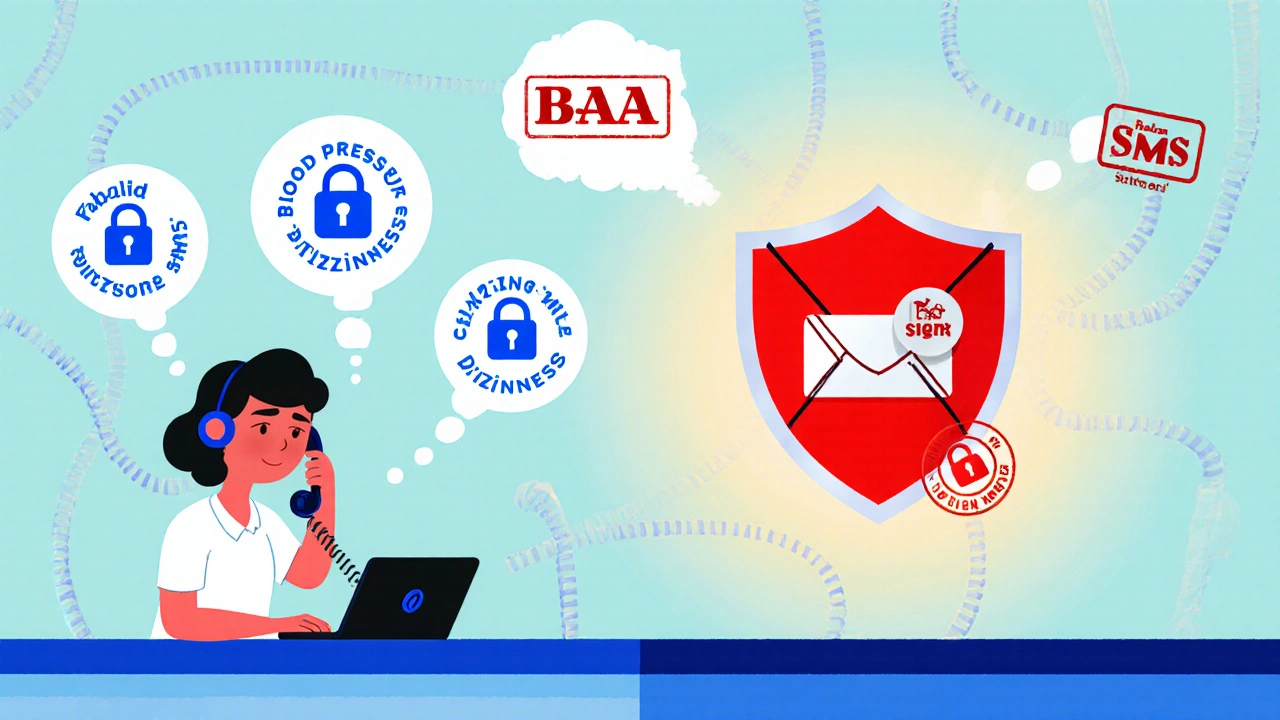

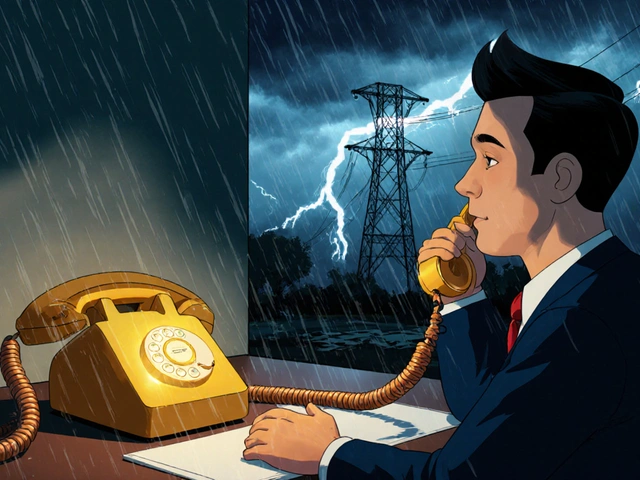

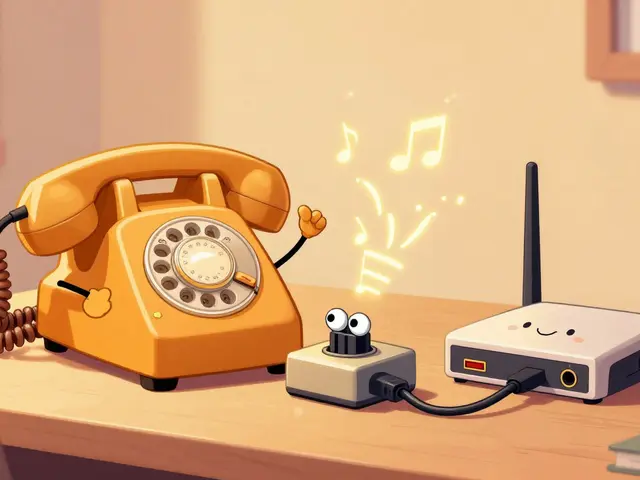
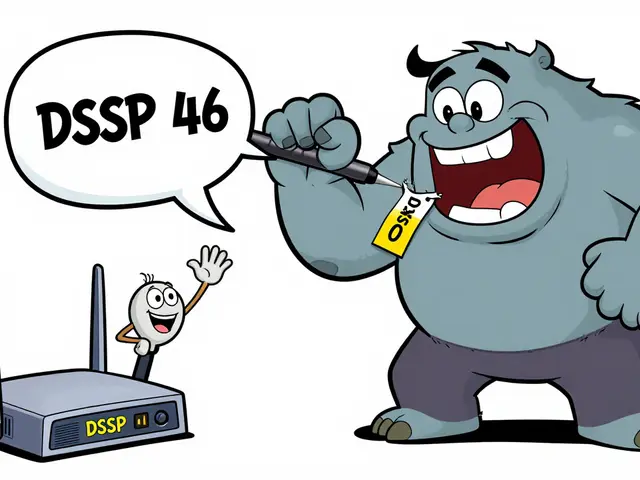
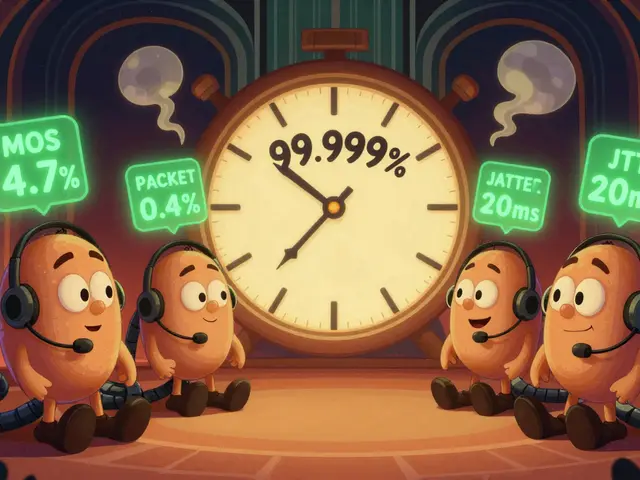
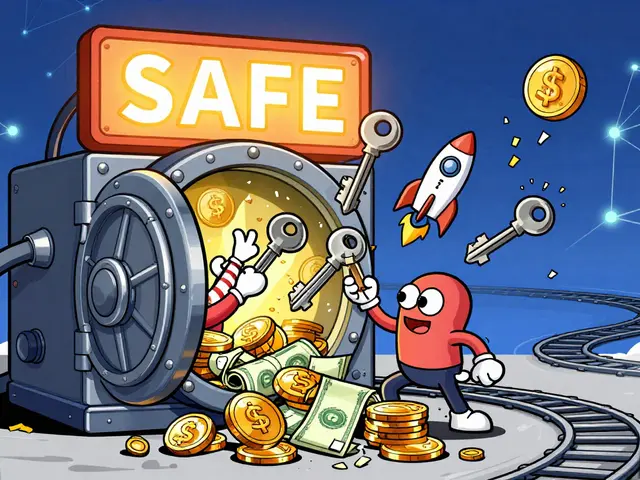
Tony Smith
30 Oct 2025 at 22:34Let’s be clear: if your pharmacy is still using Zoom for refill calls, you’re not just cutting corners-you’re playing Russian roulette with patient trust and federal fines. I’ve seen clinics that thought they were "doing fine" until the OCR showed up with a subpoena and a $1.2M bill. The tech isn’t the issue; it’s the complacency. Signing a BAA isn’t a checkbox-it’s the foundation. And if your vendor won’t let you disable SMS or encrypt voicemails, walk away. No excuses. Your patients’ data isn’t a demo account.